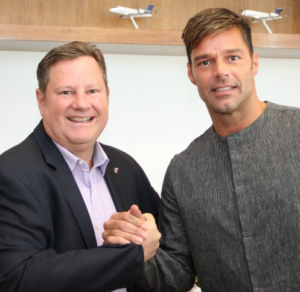‘You Can’t Learn Diplomacy Through Osmosis’
 Michael Hammer was nine years into his Foreign Service career in 1997, when he did advance work on President Bill Clinton’s visit to Vancouver, Canada, for the annual Asia-Pacific Economic Cooperation summit.
Michael Hammer was nine years into his Foreign Service career in 1997, when he did advance work on President Bill Clinton’s visit to Vancouver, Canada, for the annual Asia-Pacific Economic Cooperation summit.
Once the president’s party arrived, Glyn Davies, a fellow Foreign Service officer who was the executive secretary of the National Security Council (NSC) at the time, approached Hammer with a special task. Clinton wanted to go out to dinner with a group of friends, and Davies wondered if Hammer, who had been in the city for about 10 days, could help. Even though Hammer was a mid-level political officer, he had no problem making a dinner reservation. “I had in essence a 30-minute bus ride to make arrangements, but I did manage to find a restaurant close by, and everybody ended up having a good evening out,” he recalled.
About a year later, when it was time to bid on available positions for his next assignment, Hammer was interested in a job in the NSC’s Europe office and sent his résumé to Davies. “Glyn came back and said, ‘I don’t necessarily see a match for the Europe job, but there is a vacancy in our press shop at the NSC.’ I was pretty stunned,” Hammer said.
That job changed his career. It got him started in press work, and eventually led to his appointment as the first NSC spokesman in the Obama White House, and later as assistant secretary of state for public affairs. From there, he became ambassador to Chile in 2014. He said he doesn’t believe any of that would have happened had he not arranged that dinner for Clinton in Vancouver. “If someone comes to you, and you are able to do little things right, you might be given bigger opportunities,” he said. “People don’t necessarily focus on whether you are the best note-taker or cable-writer, but if you have a good head on your shoulders, and you can solve problems, then perhaps you’ll be given other opportunities…”
>> READ THE FULL STORY ON THE HUFFINGTON POST

